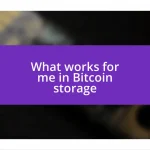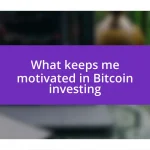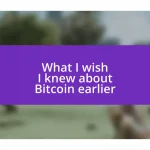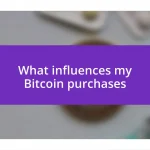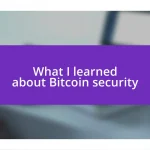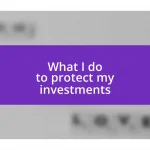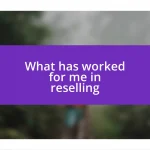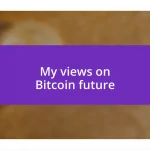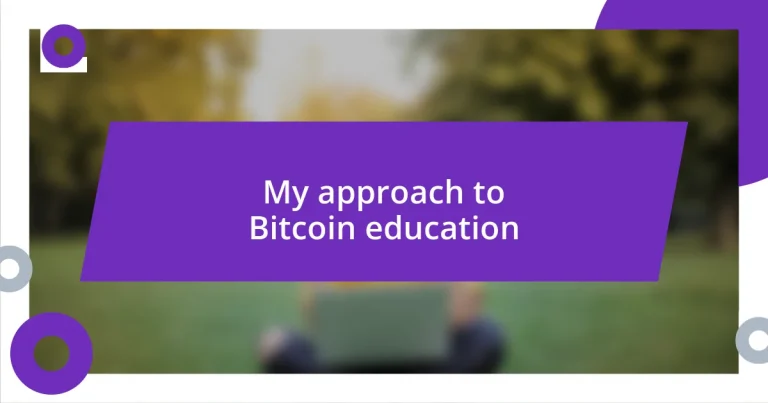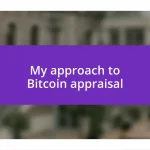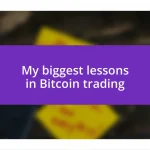Key takeaways:
- Understanding Bitcoin basics involves grasping its decentralized nature and the importance of blockchain technology as a secure transaction ledger.
- Identifying reliable resources for learning about Bitcoin is essential; utilizing official websites, established exchanges, and reputable publications can guide accurate education.
- Engaging with online communities and implementing practical applications, such as simulated trading and personal Bitcoin transactions, enhances understanding and builds confidence in using Bitcoin.
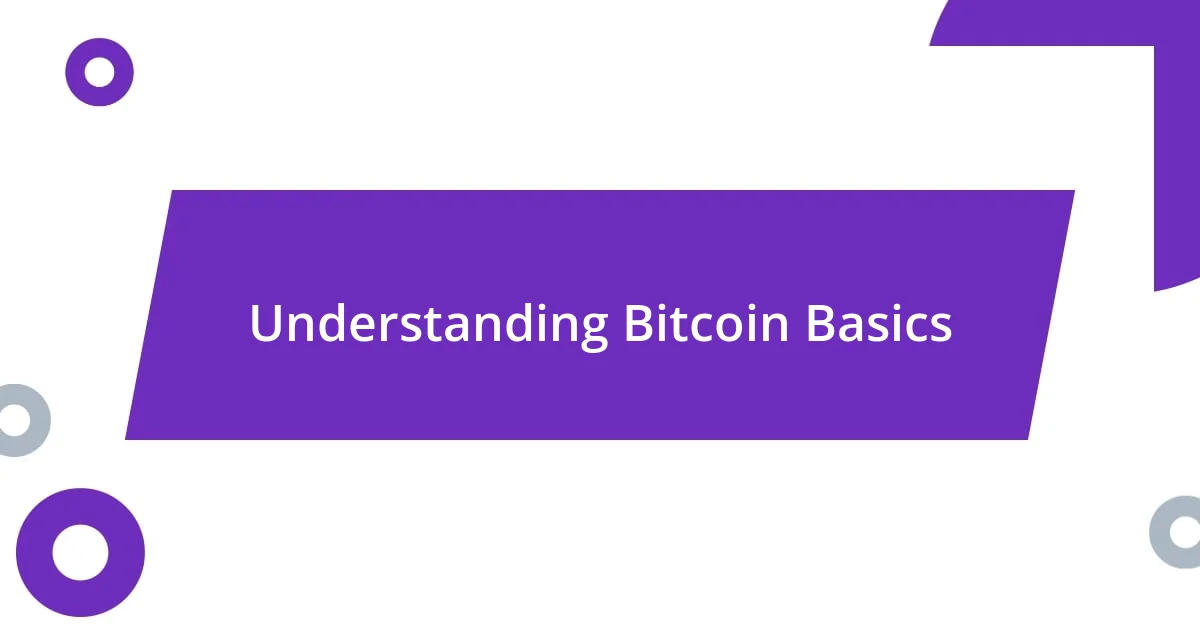
Understanding Bitcoin Basics
Bitcoin is a decentralized digital currency, which means it operates without a central authority, like a bank or government. I remember when I first stumbled upon this concept. The idea that I could send money directly to someone across the globe without intermediaries felt revolutionary and, honestly, a little intimidating.
When I first started learning about Bitcoin, I found the term “blockchain” popping up everywhere. It’s essentially a public ledger that records all Bitcoin transactions, and that’s what makes Bitcoin so secure and transparent. Have you ever thought about how empowering it feels to hold an asset that you control entirely? I often reflect on how that sense of ownership shifts the dynamics in finance.
Moreover, Bitcoin’s limited supply—only 21 million coins can ever exist—adds to its value proposition. It’s fascinating and a bit anxiety-inducing to understand that as more people get interested, the potential for price increase becomes a double-edged sword. I still vividly recall the first time I bought Bitcoin; the thrill of entering a new financial realm was both exhilarating and nerve-wracking.
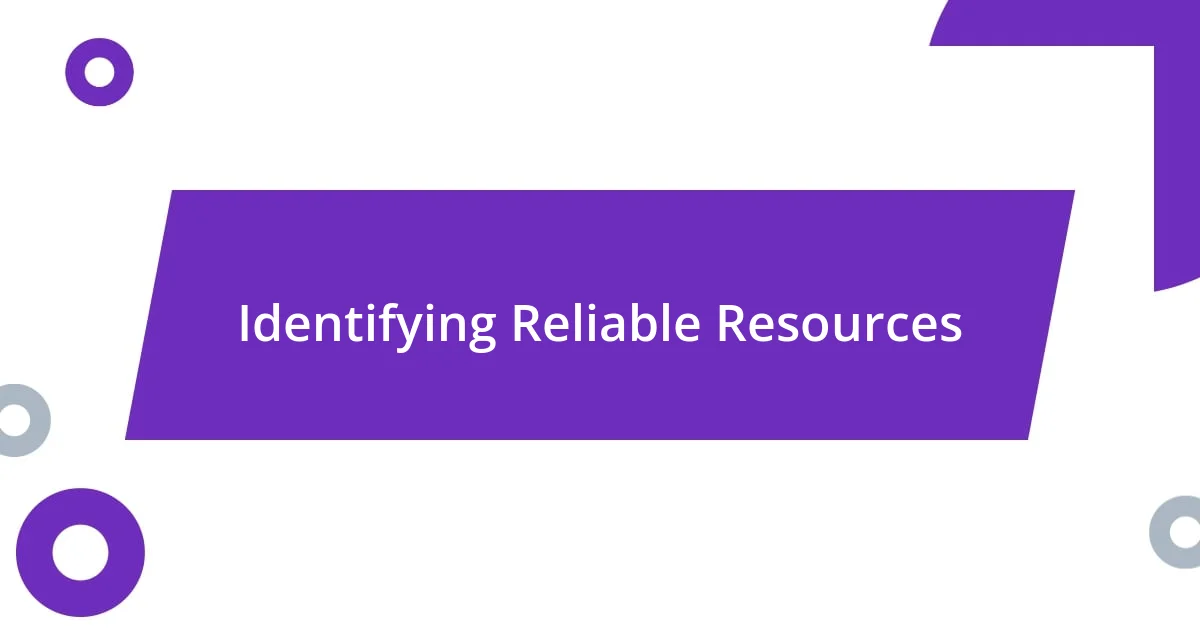
Identifying Reliable Resources
Determining which resources to trust in the complex world of Bitcoin is crucial. I learned this the hard way early on; following unreliable sources led me on a wild goose chase where I ended up more confused than informed. Now, I focus on resources that are transparent about their authority, regularly update their content, and provide clear references.
Here are some reliable resources I recommend:
– Official Bitcoin Website: This site hosts a wealth of foundational information directly from the source.
– Established Cryptocurrency Exchanges: Platforms like Coinbase and Binance offer educational articles and tutorials that are often vetted for accuracy.
– Well-known Financial Publications: Sources like Forbes or CoinDesk cover Bitcoin extensively and tend to fact-check their content.
– Community Forums: Engaging with knowledgeable individuals on platforms like Reddit can provide real-time insights, but take care to verify information shared.
– Books by Reputable Authors: Titles by authors like Andreas Antonopoulos can provide deep dives into Bitcoin’s technology and philosophy, often filled with personal experiences.
In my journey for accurate information, I’ve learned to be skeptical of anonymous or overly sensational content, as it often leads to misinformation. Finding a solid balance between engaging narratives and fact-based analysis makes all the difference.
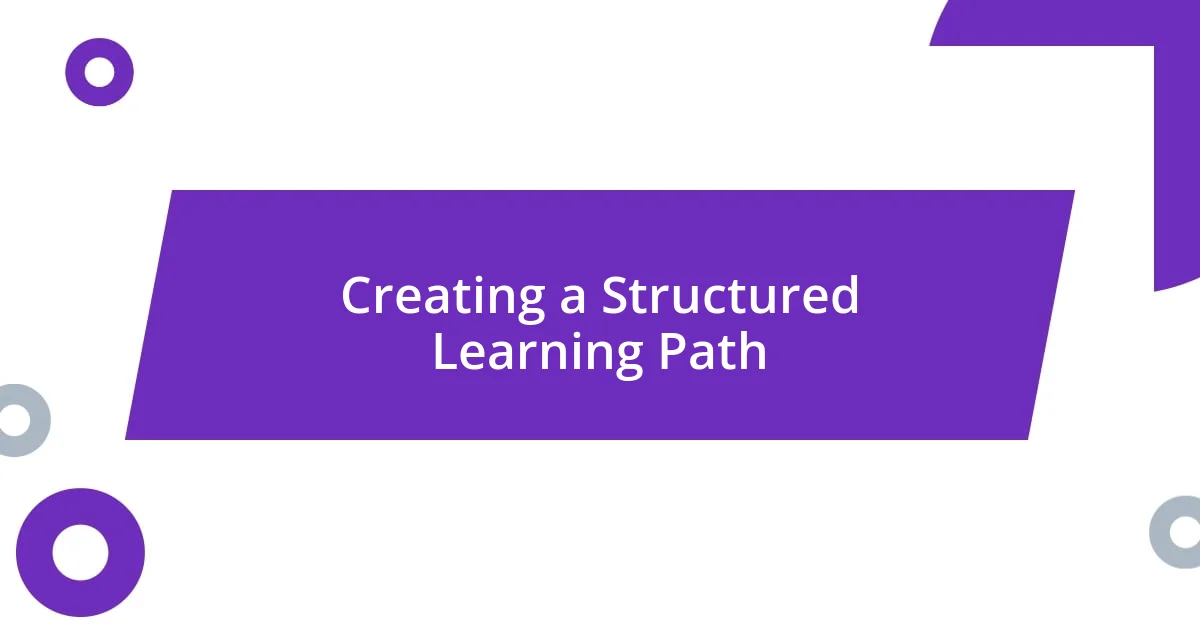
Creating a Structured Learning Path
Creating a structured learning path for Bitcoin education can be transformative. I’ve realized that breaking down the learning process into manageable segments helps mitigate the overwhelming feelings many newcomers experience. For instance, starting with the basics of blockchain technology and moving onto Bitcoin’s mechanics provided me with a clear foundation. Each step felt like adding a building block, making it easier to digest complex concepts over time.
As I delved deeper, I created a personal roadmap that highlighted key milestones like understanding transaction processes and exploring wallets. Setting specific goals, like learning about security measures or different types of wallets, let me track my progress effectively. Have you ever thought about what a difference it makes to have a clear sense of direction? This structured path not only aided my learning but also kept me motivated.
Incorporating practical exercises has also been a game-changer. For example, I started with small transactions to familiarize myself with how they work in real-time, and that hands-on experience solidified my understanding more than any article could. This combination of theory and practice created a dynamic learning experience that I believe is essential for anyone pursuing Bitcoin education.
| Learning Stage | Activities |
|---|---|
| Beginner | Explore Bitcoin basics and blockchain fundamentals. |
| Intermediate | Understand wallets, private keys, and transaction processes. |
| Advanced | Engage in trading, security practices, and investment strategies. |
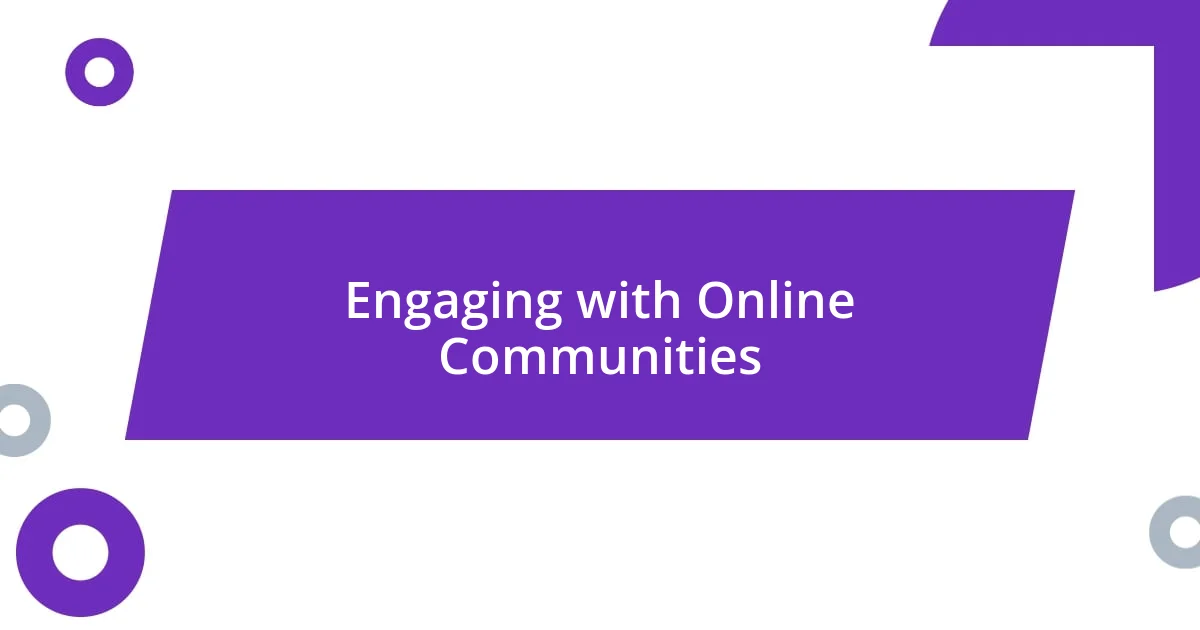
Engaging with Online Communities
Connecting with online communities has been a crucial part of my Bitcoin education. Early on, I found myself eagerly reading forums and social media threads, soaking up diverse perspectives from seasoned enthusiasts. Have you ever noticed how a single question can spark a rich discussion? Engaging with others not only helps clarify complex topics but also exposes you to real-world applications that you might not find in textbooks.
There’s something empowering about sharing experiences in these digital spaces. I remember posting a question on a Bitcoin subreddit about wallet security. The responses were varied and insightful, but what struck me was how willing the community was to share personal stories of both victories and mistakes. It really humanizes the learning process, doesn’t it? I learned as much from their anecdotes as I did from the technical advice.
Through my interactions, I also found mentorship opportunities. I joined Telegram groups focused on Bitcoin discussions, where I connected with individuals who have been in the game for years. Their tips on navigating market volatility were invaluable, and I saw firsthand the importance of building relationships in this ecosystem. Aren’t we lucky to have access to such a supportive global network? Engaging with these communities makes the learning experience feel less isolating and much more collaborative.
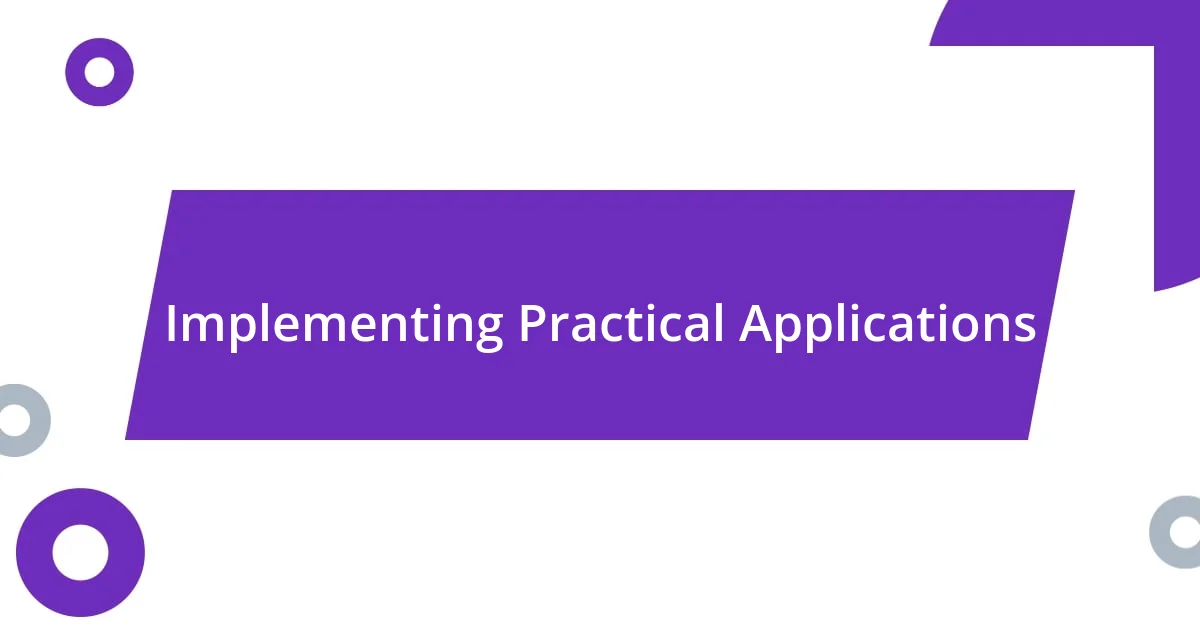
Implementing Practical Applications
Implementing practical applications in my Bitcoin education has truly energized my learning process. At one point, I decided to participate in a simulated trading platform just to grasp how buying and selling actually felt without the stakes. The rush of watching the market fluctuations in real-time was exhilarating! I never realized how much emotional intelligence plays into trading until I experienced that thrill firsthand.
Another practical exercise I embraced was setting up my own Bitcoin node. This may sound daunting at first, but taking that step empowered me to understand the network better. It was fascinating to see how my device was contributing to the Bitcoin ecosystem while I learned about transaction verification. Have you ever felt that sense of accomplishment when successfully completing a technical task? It’s these real-world applications that solidified my theoretical knowledge and gave me confidence.
I also made it a point to explore Bitcoin’s role in everyday life, like using it to purchase gift cards or paying for services online. Initially, I was apprehensive about using Bitcoin for transactions, but each time I completed one, it felt like a small victory. This hands-on involvement demonstrated Bitcoin’s practicality, deepening my appreciation for its potential. It’s incredible how small steps can build momentum in your learning journey, don’t you think?
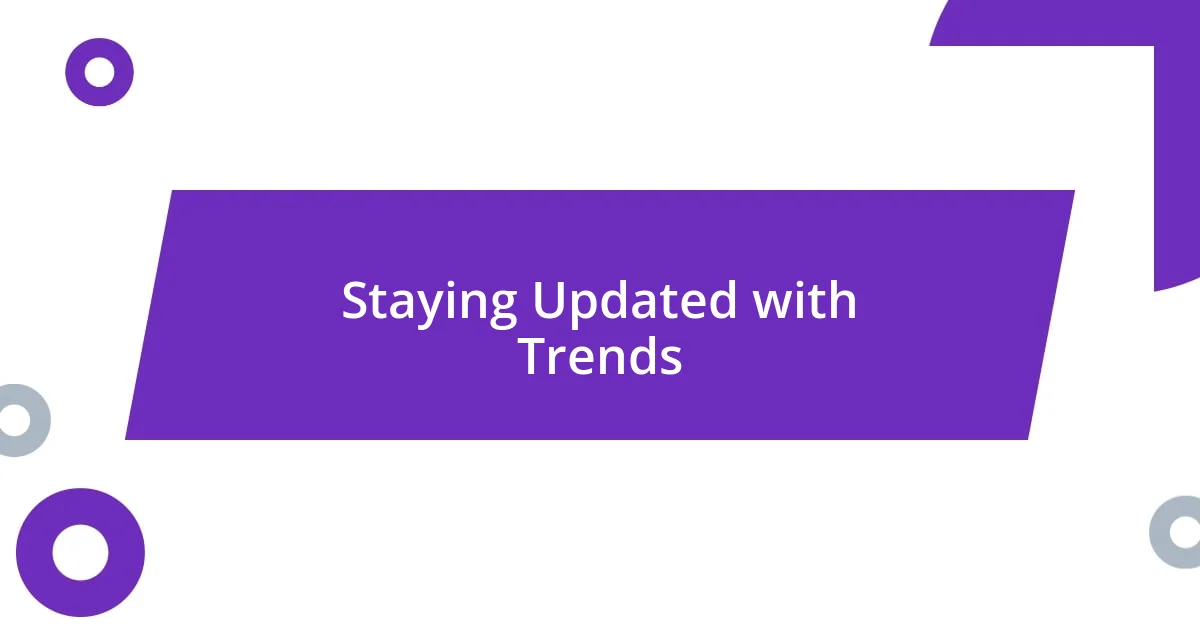
Staying Updated with Trends
Staying abreast of trends in the Bitcoin space is a vital part of my educational journey. Whenever a significant news story breaks—like regulatory changes or market shifts—I make it a point to dive deeper. I remember the day El Salvador adopted Bitcoin as legal tender; the conversations across social media platforms surged with excitement and skepticism alike. It was inspiring to witness how this decision could reshape not only the country’s economy but also global perceptions of cryptocurrency.
I actively follow a mix of reputable news websites, Twitter threads, and podcasts dedicated to Bitcoin developments. I find that listening to industry experts discussing their insights provides a refreshing perspective that written articles might miss. There’s an energy in hearing their voices and emotions, especially when they highlight trends that could impact users like us. Have you ever caught a podcast that made you rethink what you thought you knew? For me, it often leads to engaging discussions with friends, as we unpack our thoughts together.
Additionally, I prioritize attending webinars and virtual conferences whenever possible. These events have a unique way of showcasing innovative projects and networking opportunities that aren’t easily accessible elsewhere. I’ll never forget a session focused on Bitcoin’s role in renewable energy solutions, which sparked a series of “what if” scenarios in my mind. Isn’t it thrilling to imagine the potential of combining technology and sustainability? These experiences not only enhance my knowledge but also motivate me to stay curious and proactive in this ever-evolving space.
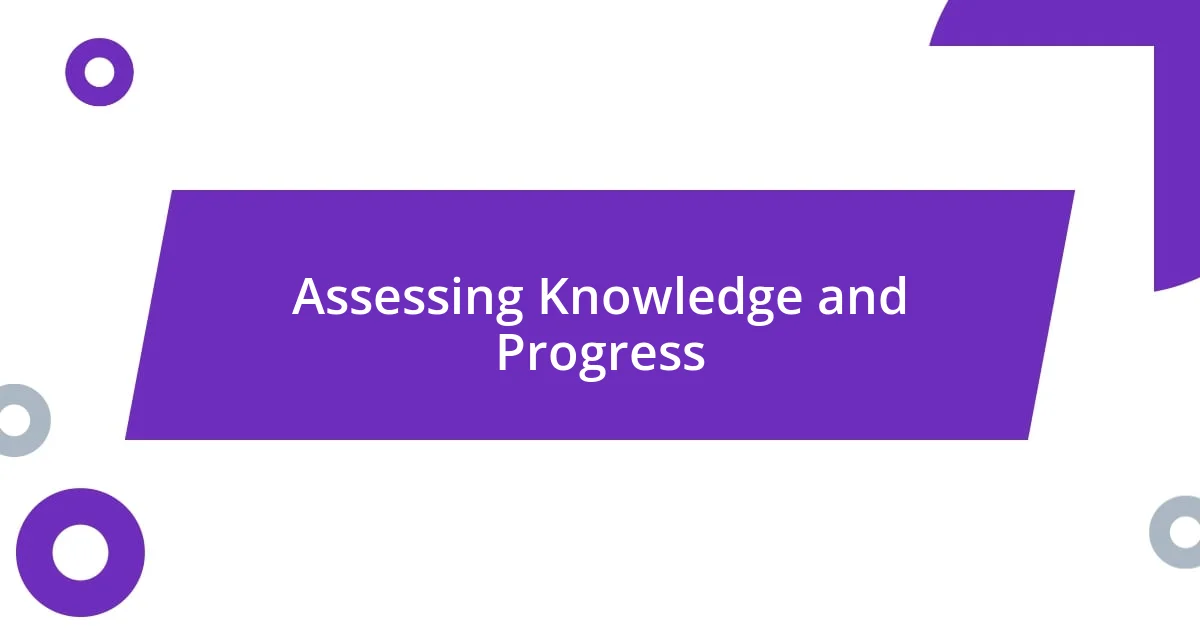
Assessing Knowledge and Progress
Assessing my knowledge and progress in Bitcoin education has been both enlightening and challenging. I use self-reflection as a tool to gauge where I stand and identify gaps in my understanding. For instance, after finishing a comprehensive book on blockchain, I found myself scribbling down notes about concepts that still felt foggy. Have you ever had that epiphany moment when everything suddenly connects? That realization propelled my desire to dig deeper, tackling those tough topics head-on.
To track my advancement, I’ve created a personal checklist of Bitcoin-related milestones. Each achievement serves as a motivational boost. One notable moment was when I successfully explained Bitcoin mining to a friend who had no prior knowledge. Seeing their eyes widen with understanding filled me with pride. It’s experiences like these that not only reinforce my learning but also encourage me to continue sharing my knowledge. What’s your proudest moment in learning something new?
I also consistently seek feedback from online communities and mentors. Engaging in discussions helps ground my understanding and reveals new perspectives. During one conversation in a Bitcoin forum, I was challenged on my views about decentralization, which led me to further research and refine my thoughts. This kind of dialogue is a powerful way to assess not just what I know, but how I can improve and grow in my education journey. Don’t you find that collaboration often leads to deeper insights?
